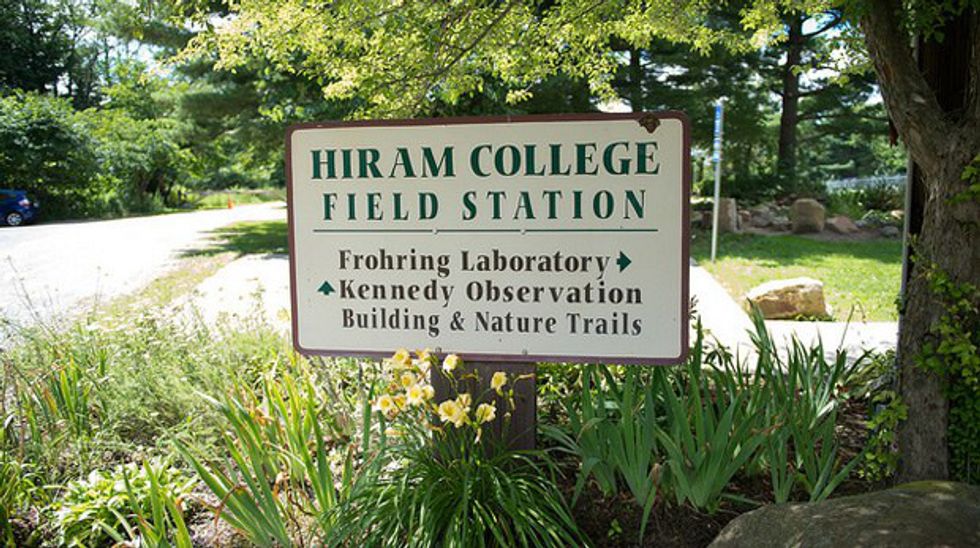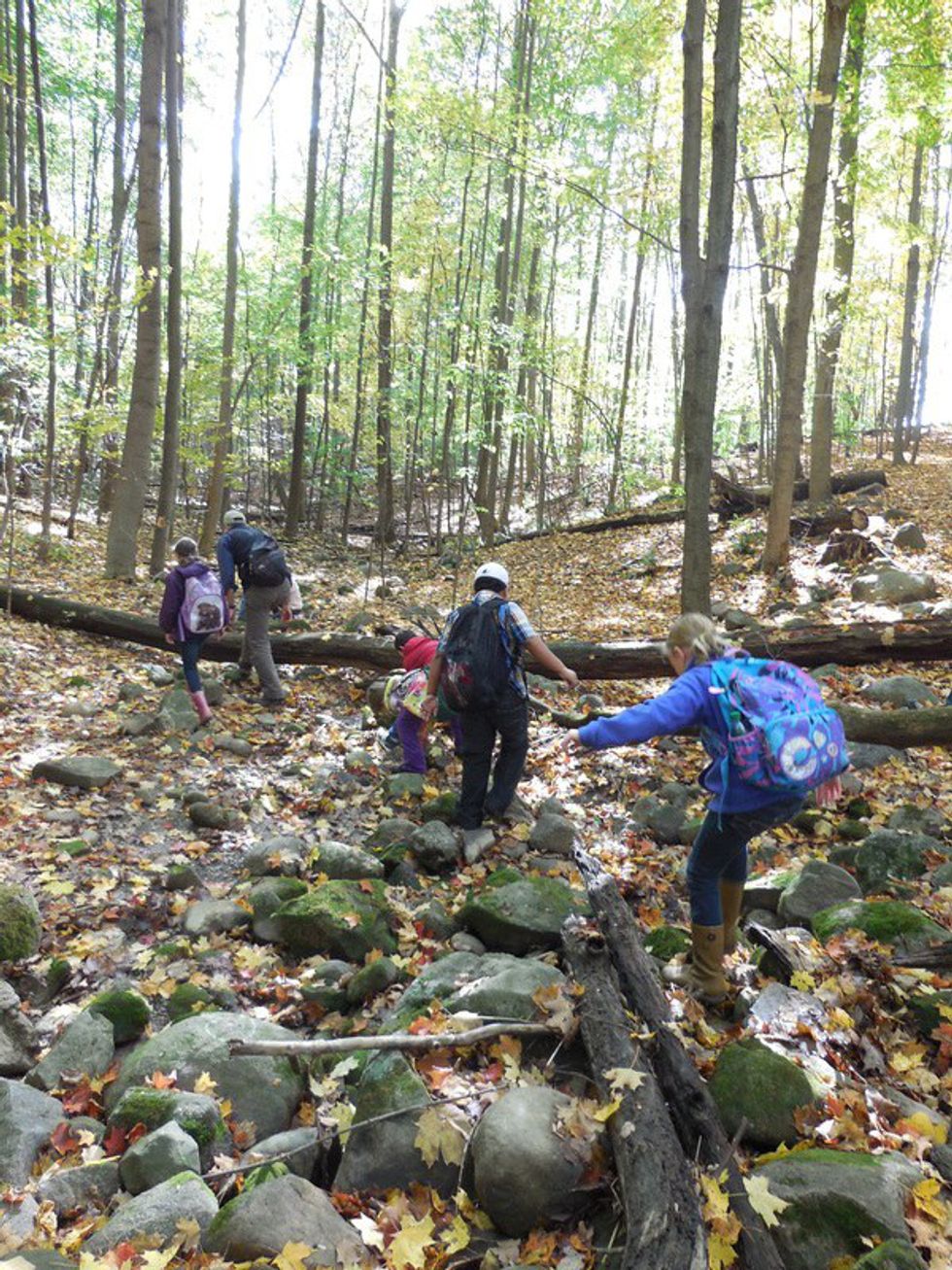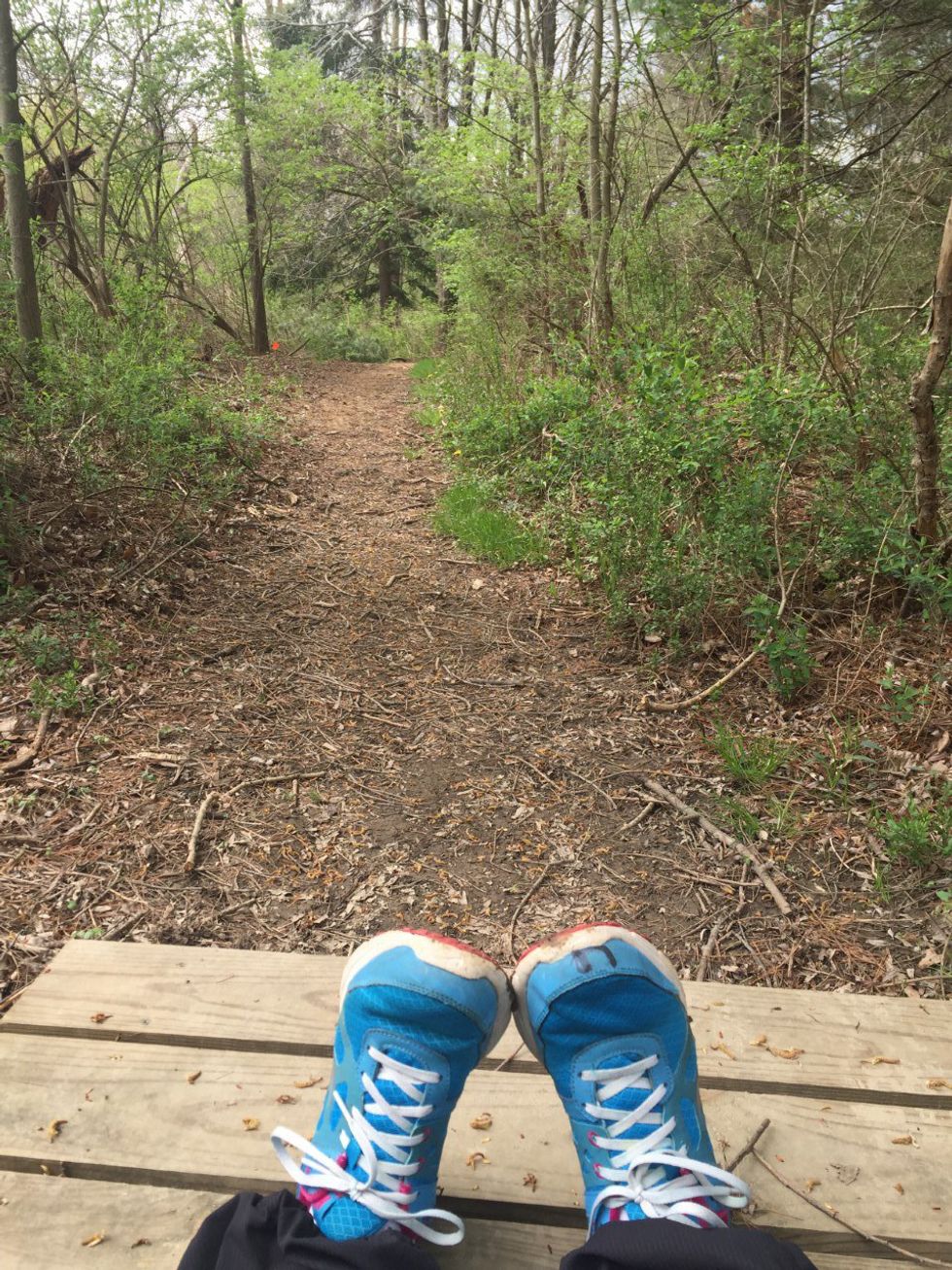Hiram College has always been trying to explore new ways of breaking up the semester from the time it was founded in 1850. Over the past 166 years, Hiram has played around with many ways of dividing the academic year. Currently, Hiram is on the "Hiram Plan" or also known as the "12-1-3 plan." The Hiram Plan takes a 15 week semester and breaks it into two parts: the 12 week and the 3 week. But both parts count as the same academic semester, as the 12 week and 3 week GPAs combine for the whole semester's GPA. For the first 12 weeks students take 3 or 4 classes and in the last 3 weeks they start a brand new class and really go in depth with it since it's the only course they have. The three week is a great time for any study abroad trips Hiram puts together, internships that count towards class credit, or (as in my experience) the opportunity to take the course titled, "Writing About Nature."
I transferred to Hiram this semester, so the whole 12 week/3 week plan was new to me, and I didn't know if I would like it. I, being a Creative Writing major, decided "Writing About Nature" was the 3 week class to choose as I thought it would boost my writing skills while, at the same time, feed into my love for the great outdoors. So far, it has done exactly that and then some.
I started my 3 week class this past Thursday, and I would like you all to know that our class does not even have its own classroom. Hiram has a 75 acre Field Station property that is a 5-10 minute drive from campus, the James H. Barrow Field Station. In other words, those 75 acres — that's our classroom.
We have class for three hours a day, four days a week and we are outside 90 percent of the time, rain or shine. I have only had two classes thus far, but the experience has been incredible. I have eaten a wild ramp (an onion/garlic-like plant) that I picked straight from Mother Earth herself, my class has been able to see and hold wild snakes, frogs, and toads, watch turkey vultures and swans. I have examined worm holes and as a class we hiked four or five miles to see a little chunk of the field station. We had the opportunity to explore a contained prairie burn (which I learned actually happens in nature and is good for the prairie since it keeps the bigger trees and plants from growing there). We came across a place where train tracks used to lay, apparently the train ran from Garrettsville to Cleveland and served breakfast and cocktails. (Can we please bring this train back? It sounds awesome.) The only reminiscence of the train now is the gap where the bridge used to be and a single track that has an informational sign on top of it, explaining the old railroad.
Being outside for my class, I have been introduced to great nature writing, learned new facts about the world around me, and have become more and more upset with the way school systems have been set up. Out of my 15 years of schooling, why has this been the only class to take place outside? Why do we teach children about biology and chemistry and weather patterns in the confines of a classroom, with just a textbook and a lecturing teacher? Books are great, don't get me wrong, but they should not be the only way to learn information. Bring the textbook and the students outside so they can SEE photosynthesis, HEAR the noises animals make, SMELL the chemical reactions of a fire burning. There is no harm teaching an English class outside - how lovely does reading poetry in the sun sound? When was the last time a white-erase board, four bland colored walls, and a hard chair actually inspired you to write a class assignment?
History lives outside, science lives outside, inspiration lives outside. Yes, classrooms are great places for some academics, I am not saying to stop building schools. But for students to be stuck inside all day learning about the world around them without ever stepping out into the world around them is such a backwards thought. We live in this world, we should get the chance to learn about it by learning in it - not isolated from it.
My 3 week class at Hiram was a happy decision I was able to make, because of my college's great class offerings. But what about the universities, highschools, and elementary schools that don't have a class like this? What about them? Being outside should not be a privilege or a rare occasion — it should be apart of the educational curriculum.
*Warning: This piece was written while I was at my writing spot during class, and I must advise that once you start to work outside you may find yourself more productive, calm, and intrigued to learn.
























